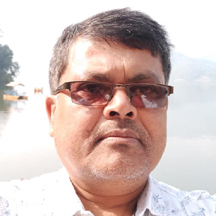Madhesh Province
Local units in Dhanusha perform poorly as they fail to exercise their powers
Authorities have been given the power to execute works regarding health, education, agriculture, livestock, social security, development activities, among others.Shyam Sundar Shashi
Service seekers across all local units in Dhanusa have the same complaint: the local bodies have failed to execute their powers and authorities granted by the new constitution of the country.
The constitution promulgated in 2015 has delegated 22 different powers and authorities to the local unit. Authorities have been given the power to execute works regarding health, education, agriculture, livestock, social security, development activities, among others.
But the locals have seen little progress in any of the sectors mentioned above since the local representatives came to office. “We had hoped that they (people’s representatives) would work effectively and efficiently for the people by exercising their powers and authorities. But the local bodies have failed to live up to our expectations,” said Bishnu Kanta Mishra, a local of Aurahi in Dhanusha. “The local units are good only at collecting tax and carrying out infrastructure development activities. They have so far ignored health, education and agriculture sectors,” he said.
Most of the local bodies have been criticised for their failure to allocate budget to community schools for scholarships, midday meals and textbooks, despite the new academic session starting four months ago. Hansapur Municipality in Dhanusha has a notorious record when it comes to budget implementation—last fiscal year Rs 9.4 million was allocated for the midday meal programme for around 5,600 students of 30 community schools, but the entire budget was frozen.
The health sector also showed poor results in the municipality. The local bodies could not hire health officials, procure medicines and other necessary equipment, or even provide salaries to the health workers. According to the health workers of Sahidnagar Municipality, they have not received their salaries for the past five months.
Mayor Udaya Kumar Yadav said the health workers’ salaries could not be provided as the budget issued under the heading was insufficient. He said, “We will clear the health workers’ salaries within a month.”
There are 58 health workers working at nine different health facilities in the municipality.
Phulgen Mandal, in-charge of Paterwa Health Post in Sahidnagar, said that the budget meant to appoint auxiliary health workers and auxiliary nurse midwives has remained frozen in the last two fiscal years. “There is a shortage of health officials but the municipality has not hired auxiliary health workers and auxiliary nurse midwife for the past two years,” said Mandal, admitting that the health post could not provide quality service to the people due to the lack of health employees.
The locals claim that the people’s representatives prioritised only infrastructure development ignoring other important sectors. “They do not give due importance to the health and education sectors. As a result, the locals are deprived of health and education facilities,” said Sanjaya Kumar Jha of Janakpurdham.
The lack of will power and knowledge about their jurisdiction among the elected representatives, process-oriented administration and corruption are the major hurdles behind the ineffective service delivery in the local bodies, believe locals.
“The elected representatives should be provided training regarding the jurisdiction of the local body. The concerned political parties have to provide training to the representatives elected from their parties. But nobody does that,” said Ramchandra Jha, former local development minister and culture expert. “The local units that were without elected representatives for 20 years have now suddenly got more rights but they don’t know how to exercise those rights,” he said.




 16.16°C Kathmandu
16.16°C Kathmandu














